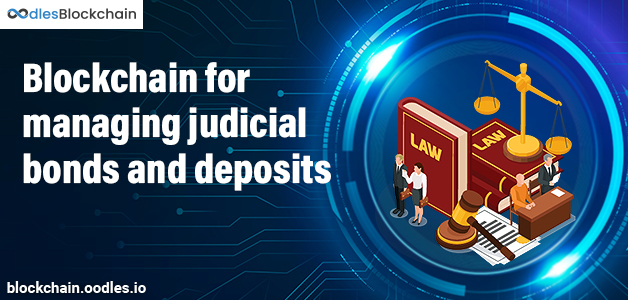-
The Reserve Bank of India v. Internet and Mobile Association of India judgment, which was recently rendered by the Hon'ble Supreme Court of India, has refocused the legal community's attention on the distributed ledger technology that served as the foundation for bitcoin and other cryptocurrencies. Although legislation governing cryptocurrencies is still in its infancy, the underlying blockchain technology has grabbed the lead thanks to its widespread adoption in virtually every industry, including the legal one.
Why Blockchain for the Judicial System
A decentralized public ledger that serves as a repository for financial transactions is what blockchain technology does. Each transaction is supported with a distinct user id to reduce the risks of data breaches and tampering. This technology is a standard tool for most businesses because it has the highest security measures for improved verification.
Blockchain technology has the potential to play a significant role in a variety of practice areas, from supporting the evolving nature of legal work to opening up new business opportunities and differentiating service offerings. Modern technology has the potential to transform routine legal duties.
Also, Read | The Implications of Blockchain in the Legal Services Industry
The Role of Smart Contracts
Law firms frequently create contracts with a recurring purpose and a similar structure. The terms and circumstances of contracts including leasing agreements, typical memorandums of understanding, rental agreements, and others can easily be automated with the help of blockchain technology. It will facilitate the process of forming contracts involving several parties and decrease the number of court proceedings where evidence must be proved.
Documents saved on an online ledger have a low likelihood of being altered once they are there.Benefits of Blockchain and Smart Contracts in the Judicial System
A Public Information Ledger
This technology is being considered for adoption by many countries to store data from censuses and about its citizens. Governments may successfully stop fraud by offering a decentralized platform to securely store data about birth, death, and criminal history. By employing this platform to preserve court rulings, even our judiciary can gain, improving the openness and usability of the legal system for litigants.
Effortless Modification of Asset Ownership and Managing Titles
The government invests significant resources each year in managing and registering land titles.
Citizens can successfully transfer and acquire their land rights at cheaper prices by offering a secure platform to hold land titles and enable the transfer of property through digital means.
Also, Read | Smart Contracts and Blockchains Transforming Legal Landscape
Rights to intellectual property
Trademark and copyright filings can be stored on a centralized platform made possible by blockchain technology. Fewer disagreements over intellectual property rights may arise with secure entries and precise time stamps.
Universal Archive
Blockchain is a decentralized network that spans jurisdictions and acts as a global information repository. This distinctive characteristic makes it possible for parties to transact internationally without difficulty.
Applications in Law Schools
Modern lawyers must have a solid understanding of technology and its uses to utilize these ground-breaking tools successfully. To prepare its students for the workforce, higher education institutions must include technology in their curricula.
Interdisciplinary instruction in law and technology should be offered in law schools to impart practical understanding in both fields. All aspects of blockchain-based smart contracts, as well as the resources needed to use them effectively, must be taught to students.
Also, Read | Legal aspects of Smart Contract Deployment
Other Revolutionary Uses of Blockchain in the Legal Sector
Automation
Administrative tasks, such as moving data across platforms and updating client trust ledgers, can take up to 48% of a lawyer's time. (2018, Clio's Legal Trends Report) Lawyers can automate transactional work and non-billable administrative activities by using a legal agreement repository and ready-made smart contracts. Legal proceedings will move more quickly if excessive manual work is reduced, which lowers expenses for clients.
Efficiency
Without sacrificing any judicial authority, blockchain technology can automate, disintermediate, simplify, safeguard, and re-engineer numerous legal business procedures. The legal and financial industries will become more effective and productive while reducing friction and expenses by optimizing numerous industry features.
Also, Read | Why Blockchain Is A Transforming Tool For Legal Industry
Transparency and Data Integrity
Unintentional hackers that want to profit from the valuable secret information collected and managed by lawyers use legal documents as a honeypot. Lawyers can decide to keep legal material on a decentralized, distributed ledger for append-only feeds, which improves data integrity, as opposed to emailing sensitive data back and forth. The corresponding hash value will not match if the evidence has been altered, indicating that a modification has taken place.
Our blockchain development experts at Oodles can assist you in making your ideas a reality. Connect to learn more about how blockchain technology and digital assets are used in the legal system.

Our Offices
INDIA
Emaar Digital Greens, Sector 61,
Gurugram, Haryana
122011.
Welldone Tech Park,
Sector 48, Sohna road,
Gurugram, Haryana
122018.













